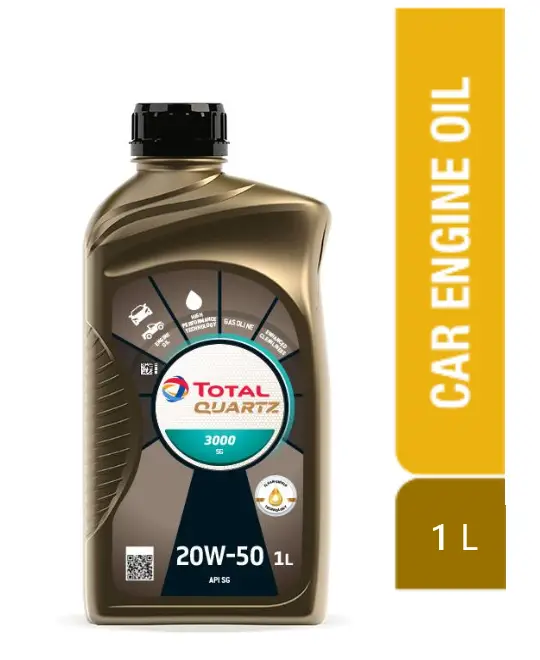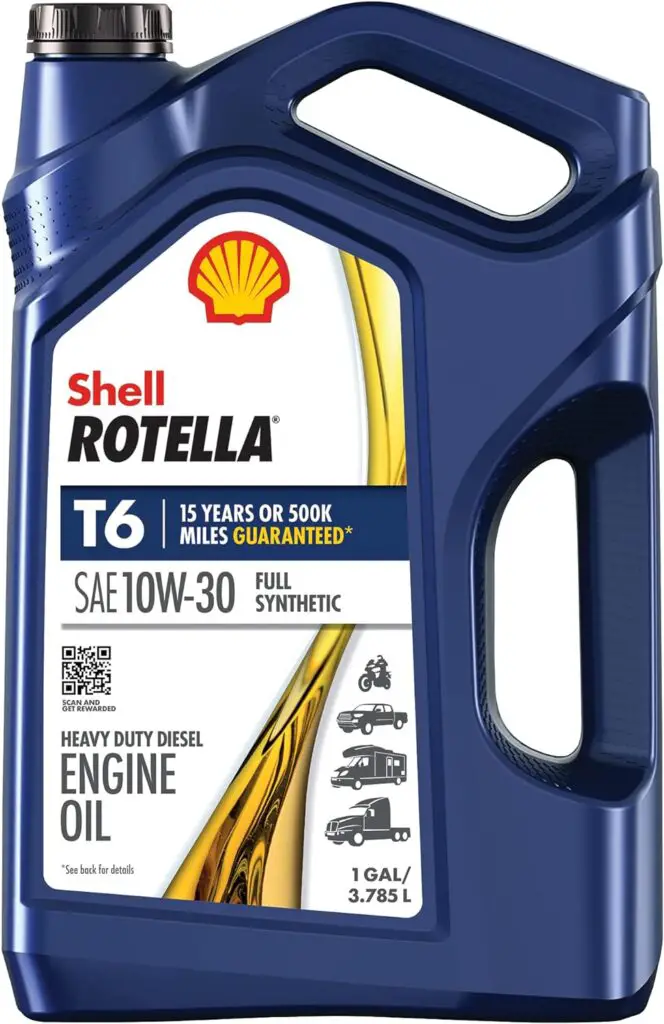Selecting the right engine oil is one of the most important choices every car owner must make in the complex world of automobile care. The engine, sometimes called the vehicle’s heart, must be carefully maintained for maximum performance, lifespan, and fuel economy. As two titans of the industry, Total and Shell, with their extensive product lines, innovative technology, and rich histories, have become the preferred brands for engine oils.
Importance of choosing the right engine oil:
It is impossible to overestimate how crucial it is to select the proper engine oil because it has a direct impact on a car’s overall performance and health. By acting as a lubricant, engine oil helps to keep moving parts from wearing out and reduces friction. By dispersing heat produced during operation, it also plays a critical part in cooling the engine. Moreover, engine oil serves as a cleaning agent, capturing impurities and keeping them from harming important parts. Choosing the right engine oil is a strategic choice that affects fuel economy, engine longevity, and overall vehicle dependability. It is not just a question of compatibility. With so many alternatives, choosing between Total and Shell engine oils requires knowing your car’s particular requirements, the driving environment, and the manufacturer’s recommendations to guarantee your engine will run smoothly and be protected.

Total Engine Oil:
Background and History: For many years, Total, a multinational energy corporation, has been a mainstay in the oil and gas sector. Since its founding in 1924, Total has continuously pushed the limits of innovation in the manufacturing of motor oils, lubricants, and gasoline. Total has cemented its standing as a dependable supplier of automotive fluids by demonstrating a strong dedication to sustainability and state-of-the-art research.
Product Range and Specifications: Total offers a comprehensive range of engine oils to suit a variety of cars, including high-performance engines and daily commuters. Conventional, synthetic, and semi-synthetic oils are all included in the selection. Total’s engine oils frequently follow industry certifications and standards, guaranteeing their compatibility with different engine types and satisfying the demanding specifications of contemporary vehicle technology.
Unique Additives and Technologies: Total’s unique combination of chemicals and innovative technology mixed into their engine oils is what makes them stand out. These additives are made to protect engines better, use less fuel, and extend the life of important engine parts. To be at the forefront of lubricating technology, Total continuously invests in research and development.
Performance and Benefits: Complete engine oils are well known for their outstanding performance in many driving scenarios. Total’s compositions are designed to offer the engine the best protection possible, regardless of the engine’s exposure to high loads, harsh temperatures, or long intervals between oil changes. Improved lubrication, less friction, and effective heat dissipation are a few of the main advantages owners of Total engine oils may anticipate.

Shell Engine Oil:
History and Legacy: Since its founding in 1907, the multinational oil and petrochemical corporation Shell has played a crucial role in the automobile sector. Shell has a long history of invention and has always led the way in the creation of engine oils and lubricants. Shell has established a solid reputation for providing high-quality products that are tailored to the changing requirements of contemporary engines.
Product Range and Specific Applications: Shell offers a wide range of engine oils for use in various automobiles, including heavy-duty trucks, passenger cars, and motorbikes. A variety of conventional, synthetic, and high-performance oils are available from Shell. Every variation offers the best protection and performance since it is designed to satisfy the requirements of various engines.
Innovative Technologies and Formulations: Shell stands out for its dedication to innovative lubricating technology. Exclusive formulas, such as additives that increase engine cleaning, lower friction, and increase fuel economy, are frequently found in Shell’s engine oils. The business makes significant R&D investments to be at the forefront of lubrication technology.
Notable Features and Advantages: The design of Shell engine oils prioritizes efficiency and longevity. Improved oxidation stability, resistance to feverish temperatures, and increased wear protection are just a few of the qualities that these oils frequently provide. Because of Shell’s dedication to both meeting and surpassing industry standards, its engine oils are known for providing dependable performance across a range of driving circumstances.

Comparative Analysis:
1. Viscosity and Grade:
- Total:
- A variety of viscosity grades are offered for whole engine oils to accommodate varying driving situations and climates.
- Viscosity modifiers guarantee reliable functioning over a broad range of temperatures.
- Shell:
- Shell provides solutions for different engine types and operating circumstances with a wide variety of viscosity grades.
- The oils are designed to keep their viscosity stable in extremely hot or cold temperatures.

2. Additives and Formulations:
- Total:
- Exclusive compounds used in total engine oils are intended to lower friction, improve engine cleanliness, and offer a strong defense against wear and deposits.
- Modern detergents and dispersants preserve oil stability and extend engine life.
- Shell:
- Advanced formulas with ingredients that boost engine protection, lower friction, and increase fuel economy are found in Shell’s engine oils.
- To prevent high-temperature stress and guarantee a clean engine, anti-wear chemicals and antioxidants are used.
3. Performance in Extreme Conditions:
- Total:
- Complete engine oils are designed to function brilliantly under the most demanding circumstances, such as hot temperatures and substantial loads.
- Through specialized formulations, viscosity breakdown is prevented, and exceptional heat stability is achieved.
- Shell:
- When faced with difficult circumstances, Shell engine oils perform well, offering dependable protection during cold starts and stability in situations involving elevated temperatures.
- Effective lubrication even in high-speed or high-stress scenarios is facilitated by anti-foaming chemicals.
4. Engine Compatibility:
- Total:
- Both petrol and diesel engines can use total engine oils because they are made to work with a variety of engine types.
- Options for both contemporary and vintage engine models are available in the product range.
- Shell:
- Shell engine oils are designed to specifically address the requirements of diverse types of engines, including those with innovative technology and emission control systems.
- Different fuel types are also compatible, guaranteeing adaptability to a wide range of vehicle models.
5. Consumer Feedback:
- Total:
- Positive evaluations frequently emphasize Total’s engine oils for longer engine life, lower engine noise, and increased fuel efficiency.
- Customers like the variety of choices available to accommodate various driving styles.
- Shell:
- Shell is well-known for their engine oils’ capacity to preserve engine cleanliness, lower wear, and provide reliable performance.
- Customers frequently draw attention to the brand’s durability and dependability.
6. Environmental Considerations:
- Total:
- By adopting eco-friendly policies and programs, Total shows its dedication to sustainability and lessens its negative environmental effects.
- To promote resource efficiency, the corporation frequently emphasizes the creation of oils with prolonged drain intervals.
- Shell:
- Shell is a proponent of sustainable development, emphasizing the mitigation of carbon emissions and the advancement of ethical production methods.
- Shell’s commitment to environmental responsibility is consistent with the development of energy-efficient oils.
7. Price and Availability:
- Total:
- Total engine oil prices vary according to the product and its composition.
- The items are widely available, as they may be obtained through authorized dealers and retail stores.
- Shell:
- The cost of Shell engine oil varies according to the product category and requirements, although they are priced.
- extensively accessible to customers because of a worldwide distribution network.
Making the right choice:
A. Consideration of Vehicle Type
- Certain vehicle types may require the formulation of different engine oils (e.g., passenger cars, trucks, motorcyclists).
- Talk about the importance of choosing an oil that complies with the vehicle’s specifications.
B. Understanding Driving Conditions
- Stress how driving circumstances, such as heavy traffic, long trips, and sweltering temperatures, affect the performance of engine oil.
- Emphasize any elements from Total and Shell products that are designed to accommodate different driving circumstances.
C. Manufacturer Recommendations
- The significance of following the engine oil requirements as recommended by the car manufacturer.
- Talk about any alliances or support that car manufacturers may have for Shell or Total.
D. Performance Preferences
- List the performance criteria that Total and Shell are addressing, such as wear prevention, engine cleaning, and fuel economy.
- Talk about expert or consumer reviews that attest to the satisfaction of performance.
E. Budget Considerations
- Give details on the engine oil price structures of Total and Shell.
- Talk about whether the benefits or extra features of one brand make up for its higher price.
F. Availability and Convenience
- Examine the goods’ accessibility and distribution methods for Shell and Total.
- Consider aspects of convenience, such as the availability of goods at nearby stores or online.
G. Environmental Impact
- Talk about any green projects or certifications that Total and Shell have obtained.
- Think about the effects of each brand’s recycling and oil disposal initiatives.
H. Long-Term Cost-Benefit Analysis
- Urge readers to think about the advantages of buying premium engine oil eventually.
- Talk about cost reductions on engine longevity and maintenance.
I. Seeking Professional Advice
- Urge readers to seek advice from automotive experts or investigate specific instructions in car manuals.
- Give readers information on where to get professional help if they have any specific questions or concerns.
J. Conclusion on Making the Right Choice
- List the important things to think about to choose between Total and Shell engine oils.
- Stress the value of making an educated choice based on personal preferences and requirements.
Frequently asked questions:
Does the total engine oil perform well?
Indeed, lubricating, lowering friction, releasing heat, and avoiding wear are all accomplished by high-quality motor engine oil.
Which engine oil is the best?
There is no one “best” engine oil; instead, it depends on several variables, including the kind of vehicle and the operating environment. Reputable companies such as Shell and Total provide high-quality solutions.
What is the lifespan of total engine oil?
To guarantee optimal engine efficiency, Total engine oil has a varying lifespan; it normally lasts for 5,000 to 10,000 miles (about 16093.44 km) or 6 to 12 months.
Which engine oil has the highest price tag?
Synthetic oils from premium brands, such as Royal Purple, Amsoil, and Mobil 1, are frequently more expensive than conventional oils.
Conclusion:
To sum up, choosing between Total and Shell engine oil requires careful consideration of several parameters to achieve the best possible vehicle performance and lifetime. These companies are respected options in the industry since they provide innovative technology, a wide variety of products, and satisfied customers. Individual tastes, driving circumstances, and the vehicle’s unique requirements should all be taken into consideration while making this selection. Through compliance with manufacturer guidelines, evaluation of performance criteria, budgetary limits, and environmental factors, customers may make an informed decision that suits their specific requirements. Choosing an appropriate balance that best serves the vehicle and improves its overall efficiency and dependability is crucial, regardless of whether high-performance additives, environmentally friendly alternatives, or cost-effective selections are prioritized.

